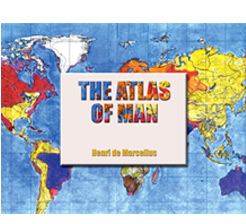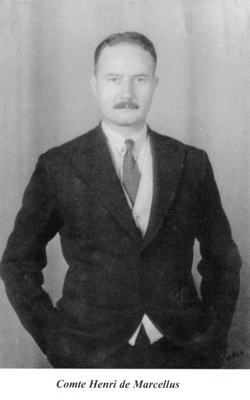
Review:
"The Atlas of Man puts into juxtaposition the findings of anthropology and the changes in sea levels brought about by changes in climate. It thus informs us in an important manner through its dual historical and geographic view of human evolution, which is our own objective here at the Museum. I will place the Atlas of Man among the most valuable works of our library, to be consulted by our members"
- Jean Pierre. Mohen, Director, Musee de l'homme, (Museum of Mankind and Prehistory), Paris - (Read full testimonial letter)
- Peter H. Hildebrand, Deputy Director of Space Travel, National Aeronautics and Space Administration - (Read full testimonial letter)
The Atlas of Man is a stand-out as its scope and depth of perspective is unprecedented. Its particluar focus on providing texture and behavior to past climate change impacts is of particular interest to me
- Ted Turner - (Read full testimonial letter)
The Atlas of Man is a very interesting publication that may be an excellent resource for the Discovery Channel
- John Ford, President and General Manager, The Discovery Channel - (Read full testimonial letter)
Book Description:
The Atlas of Man is an anthropological atlas by Henri de Marcellus that combines the history of mankind with the Earth’s geological and climatological past from the first ice age of Gunz until the present day - a span of over 500,000 years.
Educated in France during the golden age of anthropological discoveries and a life-long student of geography, climatology and anthropology, de Marcellus remained in constant contact with the leaders in these fields throughout the decades when the greatest discoveries were made.
The interdisciplinary character of this study brings together the work of the leading 20th century anthropologists and geologists and the juxtaposition of their disciplines goes far to resolve a number of riddles that have beset the study of early man. Thus, The Atlas of Man represents a summary of the work of three generations of the world’s leading anthropologists and geologists such as Louis Leakey, C. S. Coon, Teilhard de Chardin, F. Weidenreich, Bedrich Hrozny, Kenneth Oakley, as well as the African specialists, H. Aliman and Sir H. H. Johnston, the geologist and oceanographer, Rhodes W. Fairbridge, and many others.
The Atlas consists of a series of 22 global maps, hand painted by the author to give maximum clarity to the movements and changes, with a comprehensive accompanying text. The maps superimpose a depiction of man’s evolving development and racial diversity, and migrations upon the dramatic changes of climate and environment caused by the four great Ice Ages: 'Gunz', 'Mindel', 'Riss' and 'Würm' - the interglacial periods that separated them and the variations in climate since that time.
The maps also depict the vast eustatic changes in ocean levels that occurred in consequence of the glacial periods, bringing about the creation of land bridges, exposed shore lines and the flooding of areas that are desert today.
The text gives a clear outline of the significant discoveries in the field of prehistory, supported by the fossil record, as well as the author’s commentary concerning the many questions that surround racial origins; it continues into historical times, illustrating the formation of diverse peoples and populations. Many of the hypotheses put forward by the author in this work have now been confirmed by DNA tracing.
The Atlas’ depiction of the planet’s past dramatic changes in climate and ocean levels address the question of “climate change” in a broad context, and are therefore of universal interest.




